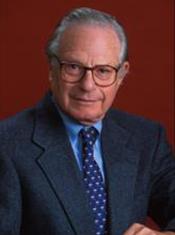Milton Corn
Milton Corn received his BS degree from Yale College and his MD degree from Yale Medical School. He completed his residency in internal medicine at Harvard University’s Peter Bent Brigham Hospital, and a fellowship in hematology at Johns Hopkins University. Dr. Corn served as Professor of Medicine at Georgetown University School of Medicine, where he held a number of leadership positions, including Medical Director of Georgetown University Hospital and, during the 1980s, Dean of the School of Medicine. In 1990, Dr. Corn joined the National Library of Medicine as Director of the Extramural Programs Division. As director, Dr. Corn was responsible for all aspects of the NLM’s grant programs, including the NLM Research Training Grant in Medical Informatics. In May 2009, Dr. Corn was appointed NLM Deputy Director for Research and Education. In this role, Dr. Corn serves as principal medical advisor on research and development and medical education priorities for NLM, and provides direction and advice on the full range of NLM’s intramural and extramural research portfolio. [Adapted from http://www.nlm.nih.gov/od/roster/milton_corn.html]
Interview Abstract
Milton Corn begins the interview discussing the definition of health informatics and the early National Library of Medicine Research Training in Medical Informatics programs, including the University of Minnesota’s training program. Dr. Corn describes his first introduction to medical informatics while serving as dean of Georgetown University School of Medicine and his decision to join the NLM in 1990. He describes at length the evolution of the NLM Research Training Program and the related history of the University of Minnesota’s training program based on the evaluations the NLM performed of the training program every five years. He discusses the University of Minnesota and Mayo Clinic’s efforts to establish a collaborative training program with Arizona State University. He also discusses the implications of Minnesota’s decision not to fully pursue bioinformatics when the NLM shifted the focus of its training program in the 1990s. Dr. Corn goes on to discuss the development of the Clinical and Translational Science Awards and the influence of the awards on health informatics research.
